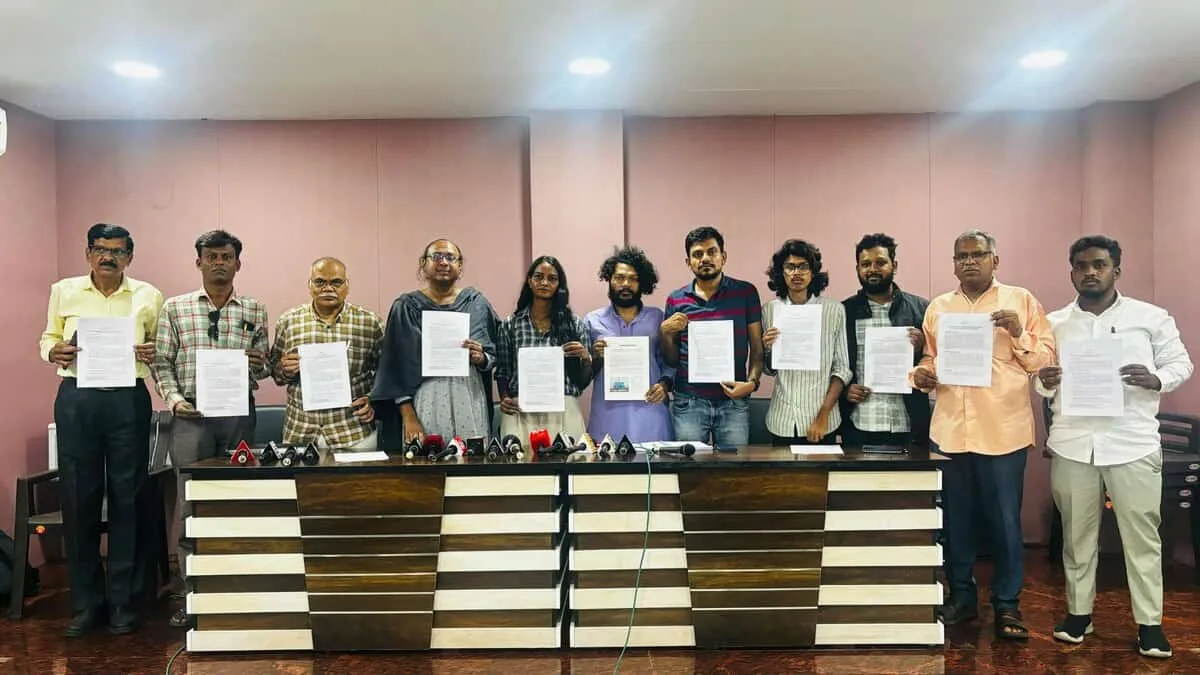Hyderabad: The civil society action groups and subject matter experts have demanded suspension of Hyderabad Integrated Municipal Solid Waste Private Limited (Resustainability Ltd), formerly known as Ramky Enviro Engineers Limited’s Waste to Energy (WTE) plant operations in both Hyderabad and Dundigal.
In a statement to the media, on Friday, September 26, endorsed by over a dozen people’s organisations, the activists also demanded that the authorities concerned issue show-cause notices to the plant operators for violations of Consent to Operate (CTO) conditions, levy of environmental compensation, and initiation of prosecution under the applicable laws.
In their response to the rejoinder issued by Hyderabad Integrated Municipal Solid Waste Private Limited, the activists’ collective presented key evidence of the failures and hazards associated with the Waste-to-Energy (WTE) incineration plant operated by the company.
High concentration of heavy metals
Citing the Central Pollution Control Board’s (CPCB) report of August 18, 2025, the environmentalists pointed out the extraordinarily high total concentrations of heavy metals in the fly ash, including cadmium at 865.65 mg/kg in Hyderabad (Jawaharnagar WTE) and 956.69 mg/kg in Dundigal WTE.
“For example, among the various heavy metals, the limit for cadmium (Cd) is the most stringent, with a maximum allowable concentration of only 1 mg/kg in raw materials fed into cement kilns. Similarly, the concentration level exceeded the World Health Organisation’s (WHO) soil quality guidelines by over 1,000 times (WHO permissible limit for cadmium in soil: 0.8 mg/kg),” the organisations observed.
Disposal of fly ash
The CPCB report also reveals that the toxic fly ash is being dumped at the Jawaharnagar dumpsite instead of being used for brick-making or being sent to secure landfills.
“A CPCB report dated 15.04.2024 explicitly mentions that disposal of bottom ash and fly ash from the Hyderabad WTE plant is in landfills,” the activists noted.
Lack of monitoring
Referencing the CPCB’s submission to the National Green Tribunal, further stating that the WTE
plant in Hyderabad has been monitored only twice in the last five years. They wondered why a “Red Category” industry (when it was commissioned) was not even monitored once in the first four
years of its operations.
Telangana Pollution Control Board’s faulty equipment
“TGPCB, in its submission to the CPCB, has stated that its laboratory equipment is faulty and hence it has relied on third-party laboratories. However, this has raised serious credibility issues on the analysis and test results on the WTE plant,” they stated, raising suspicion on the test results of “0.0000 ng TEQ/Nm3” of Dioxins and Furans.
Public health emergency in Jawaharnagar
“Our joint fact-finding report from May 2025, based on community testimonies, further documents leachate overflows into the residential area, and contamination of groundwater and soil in Jawaharnagar. “The findings in it underscore a public health emergency in Jawaharnagar, where marginalised communities, least responsible for the city’s waste, are forced to live amidst hazardous pollution and regulatory neglect,” the activists raised alarm.
Movement against the reclassification of WTE plants from ‘red’ to ‘blue’ category
Strongly opposing the reclassification of WTE incinerators from the “Red Category” to the “Blue Category” of industries, against which a nationwide campaign is running, the collective stated that despite emitting dioxins, furans, and heavy metals, and having a pollution index of 97.6 (the highest among all
Blue Category industries), WTEs were being misleadingly rebranded as “essential environmental services.”
“This re-categorisation poses a direct threat to public health and environmental safety, weakening the oversight of one of India’s most polluting sectors,” the activists’ collective warned.
.







